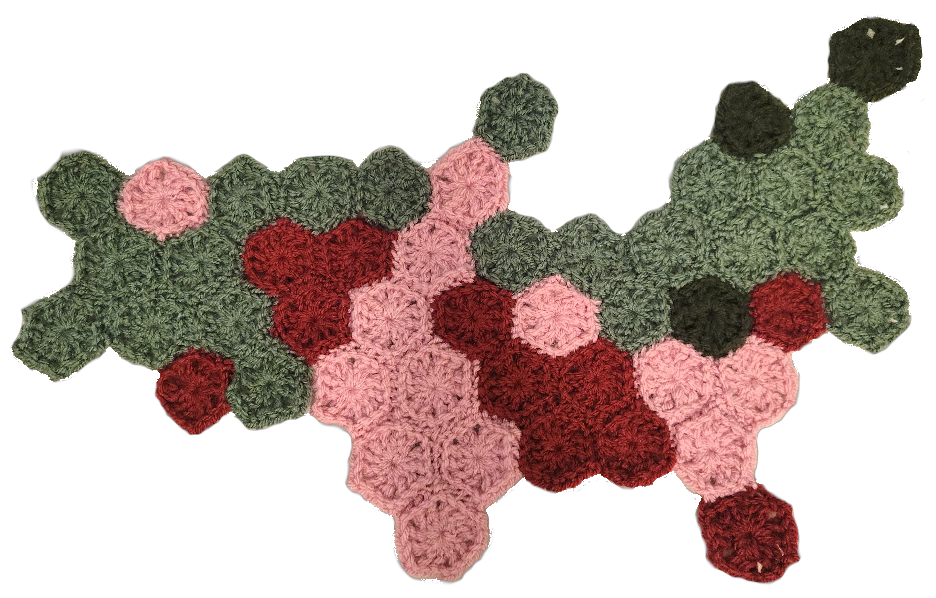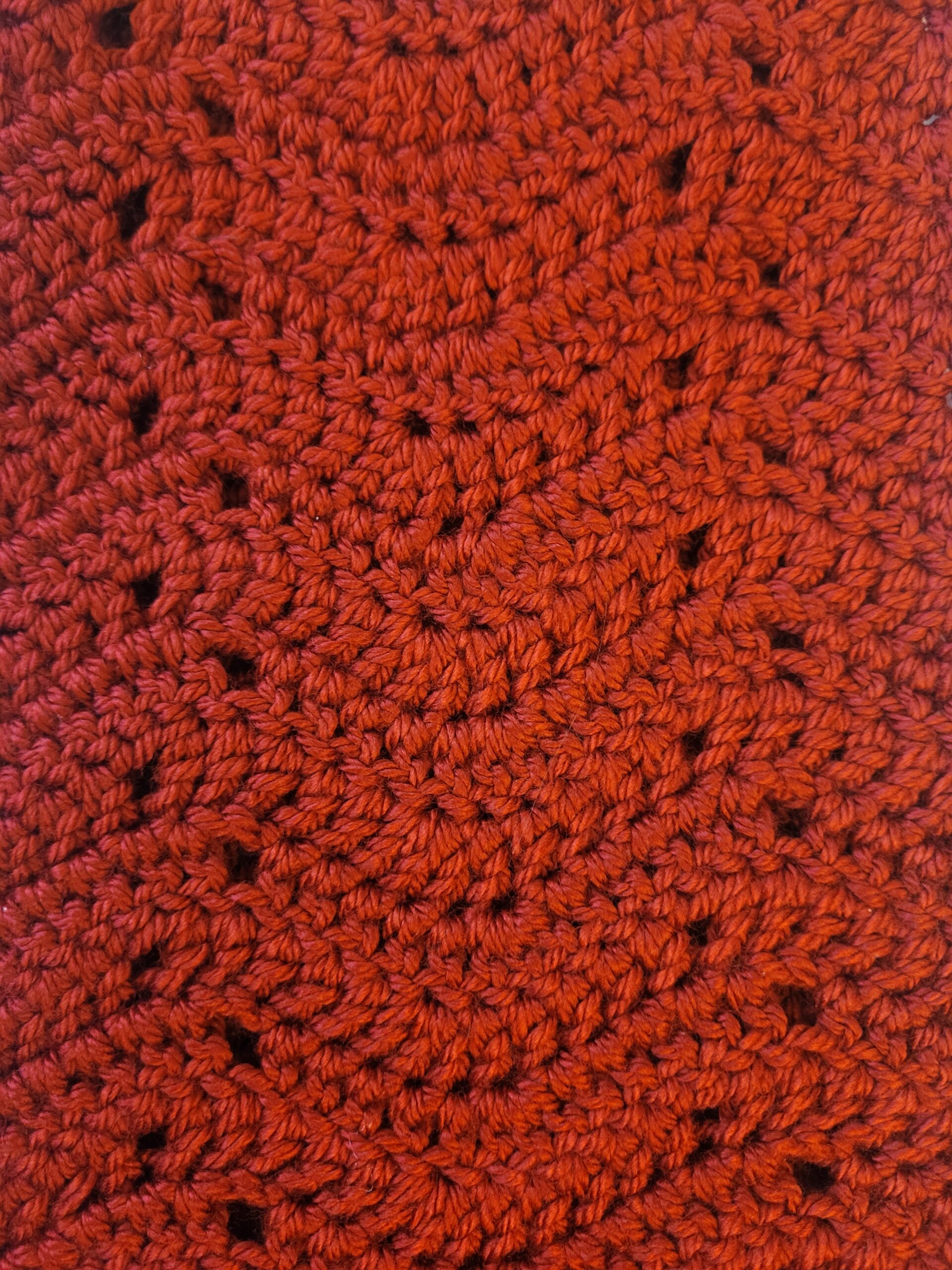Stats to Stitches is a digital exhibition of data-driven crochet as well as a space for activists and crafters to learn more about social justice issues. To further the conversation around activism, craft, and the intersection of the two, the project has several sections.
The Resources section offers a detailed Bibliography as well as a How to portion with crochet and project resources. The Blog dives deeper into crochet, craftivism, and the project as a whole while the Community section provides other crafters with a platform to share their own works of craftivism. Lastly, the Take Action section details ways for people to get involved in or learn more about the topics discussed throughout the project.
In the first crochet series, each piece represents a different aspect of voting and elections in the United States to highlight the importance and history of voting rights in the country.
The crochet pieces in the voting series include:
- a blanket that shows U.S. voter turnout from 1789 to 2022 (McDonald, n.d.)
- a tote bag displaying the level of voting rights for the formerly incarcerated in each state (Movement Advancement Project [MAP], n.d.)
- a vest that represents the average amount of money spent on winning congressional elections from 1990 to 2022 (Open Secrets, n.d.).

Why Crochet?
Using crochet for data visualization provides several unique features. For one, crochet creates interactive tangible pieces which allow people to connect with them in a different way.
Additionally, crochet cannot be reproduced using machinery. This means that each piece is handmade. With projects taking multiple weeks to complete, there is time, thought, and intentionality behind every one.
These crochet pieces are also conversation starters. The voter turnout blanket, for example, sparked several discussions online and in real life as people are curious about the color choices and combinations.
“we have long tried to solve the same old human problems with the same old legislative tools, and by and large, it is not working. We need different tools.”
Bartel, 121
Lastly, crocheting and knitting improve mental health and reduce stress. In our 24/7 news cycle, it is important to have positive outlets for our fears, stress, and worry.
Craftivism
Crafts and crafters have supported social causes long before Betsy Greer coined the term craftivism in 2003. The concept covers the intersection of craft and activism, which allows people to use “handmade art to provoke, to interrupt, to draw attention, to help others, and hopefully spark change” (Vitkus). In this sense, Stats to Stitches is an act of craftivism.
To learn more about other works of craftivism, visit the Community or Resources page.
Data and Social Justice
Data is political and reflects the systems already in place in our society. As a result, what, how, and who collects data influences said data. By highlighting and dissecting social justice data, Stats to Stitches brings attention to how this data came to be as well as what might be missing from the narrative.
Who we are

Stats to Stitches was created by Kat Rowe, who recently graduated with her Master’s in Engaged and Public Humanities (MAEPH) from Georgetown University. Passionate about both voting rights and crochet, she combined the two in the hopes of getting more people involved in social justice issues and excited about crochet at a form of data visualization.
With a Bachelor’s in Political Science, and background working on political campaigns and for local government, she brings firsthand knowledge and experience to the project, which was her graduate capstone.
Check out some of her other work:
Citations
Bartel, Anna S. “Why the Humanities Are Necessary to Public Policy, and How.” Maine Policy Review 24.1 (2015): 117-122, https://digitalcommons.library.umaine.edu/mpr/vol24/iss1/33.
Vitkus, Jessica. “Back Cover Excerpt.” Crafting Change: Handmade Activism, Past and Present. Farrar Straus Giroux, 2022.

